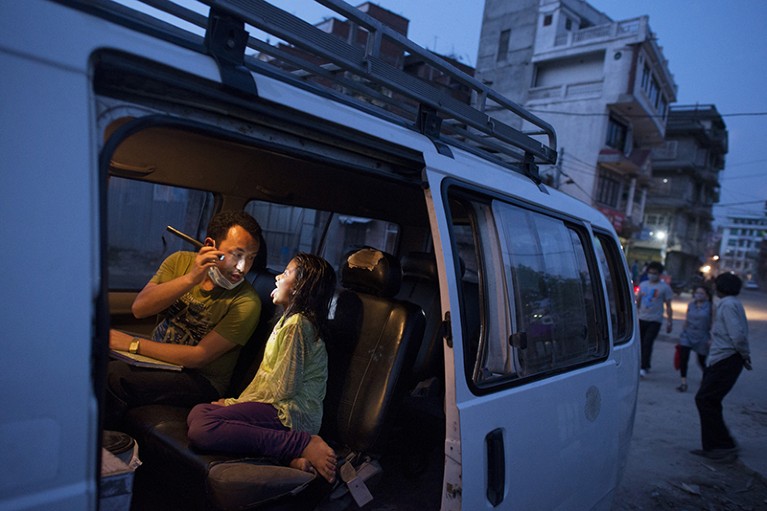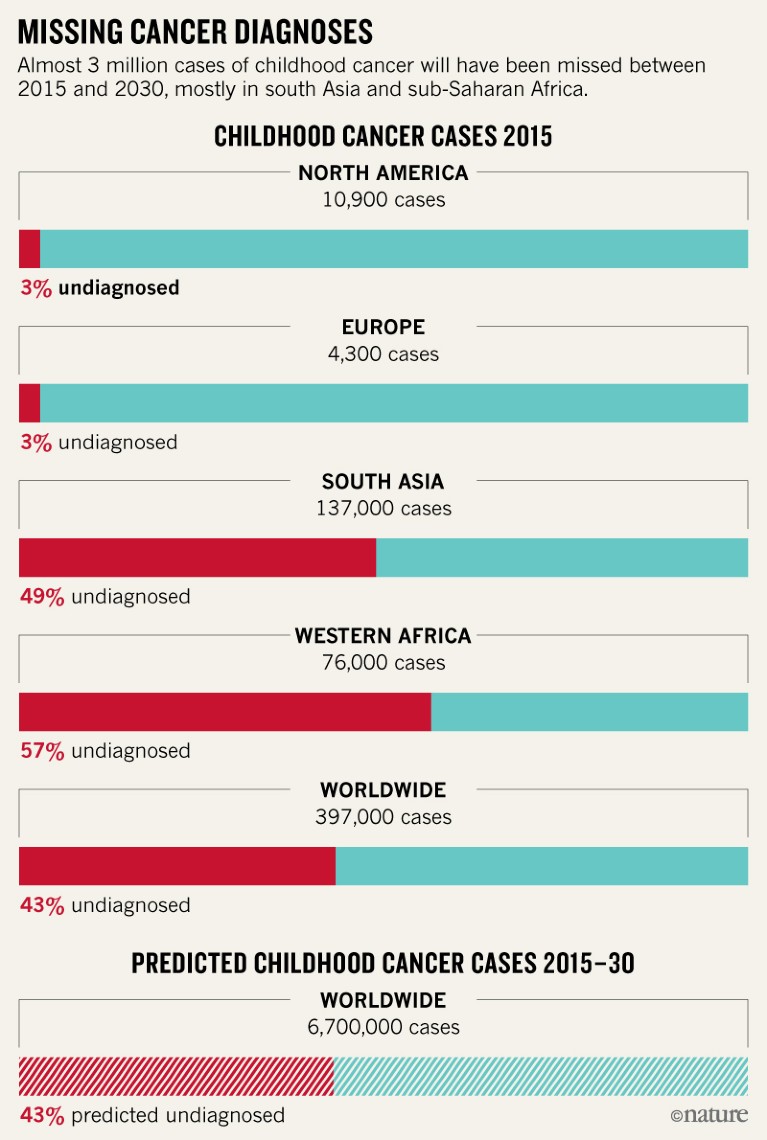Hello Nature readers, would you like to get this Briefing in your inbox free every day? Sign up here.

A mobile health clinic in Kathmandu.Credit: Jonas Gratzer/LightRocket via Getty
Nearly half of kids’ cancer cases go undiagnosed
Almost 400,000 children are thought to have developed cancer in 2015 — but 43% of those cases went undiagnosed. Figures estimated from World Health Organization data on who has access to health care are much higher than those from official cancer registries. “Because a lot of children don’t have access to primary care, they don't have access to cancer specialists — they don’t end up getting diagnosed,” says health-policy researcher Zachary Ward.
Reference: The Lancet Oncology paper

Source: Z. J. Ward et al. Lancet Oncol. http://doi.org/c3gr (2019)
Seven nations form SKA supergroup
A CERN-like organization will manage the construction and operation of the world’s largest radio telescope, the Square Kilometre Array (SKA). Seven nations have agreed to establish an intergovernmental organization, called the SKA Observatory, to oversee the building plan. The array will ultimately comprise thousands of radio dishes in Africa and up to one million antennas in Australia..
White people make pollution, others breathe it
In the United States, black and Hispanic people bear many more of the deadly effects of air pollution, while creating less pollution themselves. Non-Hispanic white people are exposed to around 17% less air-pollution exposure than they make. African Americans bear a ‘pollution burden’ of 56% excess exposure, and Hispanic Americans face 63%. “The thing that’s causing the disparity is the different amounts of consumption,” says environmental engineer Christopher Tessum. “White people spend more money.”
The Washington Post | 6 min read
FEATURES & OPINION
How 2D semiconductors could extend Moore’s law
Incredibly thin transistors could deliver even more powerful computers if three research challenges can be solved, argue semiconductor researcher Ming-Yang Li and colleagues. We need the right materials, suitable test samples and a common assessment framework to make it happen, they say.
A source of light in the Middle East
Biophysicist Zehra Sayers and four colleagues won a science-diplomacy award for her role in setting up the Turkey’s first synchrotron light source. She tells Nature why having its own light source is important in the Middle East, and how she made it happen despite some rocky times in the region.
